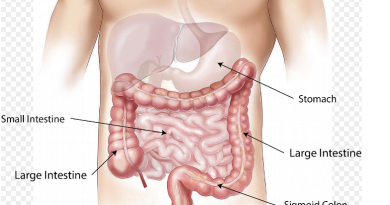Breaking Free: Tips for a Successful Addiction Recovery
Battling addiction is a journey fraught with challenges, yet it’s a path that leads to a healthier, more fulfilling life. Individuals in the throes of recovery must grapple with their past while forging new, constructive habits. A robust support network, coupled with effective strategies for coping and personal goal-setting, serve as the keystones for transformative healing. In this article, readers will learn practical advice on constructing a resilient framework for a successful recovery.
Building a Strong Support Network
A robust support network stands as the backbone of enduring recovery from addiction. Family, friends, and peers provide encouragement and camaraderie, creating a safety net that fosters resilience in the face of challenges. Their presence brings strength and hope, fueling the determination to continue on the path of sobriety.
Professional counselors and therapists play an irreplaceable role, offering strategies and coping mechanisms tailored to individual needs. They lend a listening ear and extend expert guidance to navigate the complexities of recovery. With their support, individuals gain insights into the roots of their addiction and learn to build healthier patterns of behavior.
Recovery groups and meetings are vital platforms for sharing experiences and learning from others who walk a similar journey. These gatherings instill a sense of belonging and provide a forum for accountability, where successes are celebrated, and setbacks are met with compassion. These interactions create a sense of solidarity, reinforcing the collective aim for a substance-free life.
Building a strong support network can be significantly enhanced by connecting with organizations like Bright Mission Recovery, a drug rehab in Acton, CA, that offers comprehensive support and resources for individuals in addiction recovery. Such institutions represent a beacon of assistance, extending their reach to provide services catering to the distinct recovery phases. Their work underscores the significance of a supportive community and its impact on sustaining a lasting recovery.
Developing Healthy Coping Strategies
Central to breaking free from addiction is the establishment of healthy coping strategies. These behavioral tools arm individuals with the ability to withstand stressors and triggers without reverting to substance use. Recognizing warning signs and employing effective techniques are key components of a robust recovery plan.
Mindfulness and relaxation exercises constitute powerful allies in the fight against addiction. By fostering awareness of thoughts and feelings, people in recovery can respond to negative patterns constructively. Through activities like meditation or deep breathing, they can achieve a state of calm that aids impulse control.
Physical activity stands as another pillar in the arsenal of coping strategies. Regular exercise improves overall health and releases endorphins that mitigate cravings and uplift mood. Incorporating a routine of physical exertion, whether a brisk walk or an intense workout, can boost confidence and reinforce a commitment to sobriety.
Lastly, creative expression opens a pathway for emotional release without using substances. Engaging in art, writing, or music provides an outlet for articulating feelings and experiences that might be challenging to communicate. This form of self-expression can serve as a cathartic and empowering aspect of the healing process.
Setting and Achieving Personal Goals
Overcoming addiction often entails setting personal goals that align with the journey toward sobriety. These goals provide direction and milestones to measure progress, reaffirming an individual’s commitment to recovery. As achievements accumulate, they amplify the sense of accomplishment and self-worth that is pivotal in sustaining long-term recovery.
Goal setting in the context of recovery should be realistic and achievable, intended to foster gradual improvement without causing overwhelming pressure. Each small success paves the way for the next, building a stairway out of addiction. Individuals find motivation and purpose in these incremental steps, which guide the recovery process’s ups and downs.
Acknowledging and celebrating the achievement of each goal is paramount in maintaining the momentum necessary for sustained recovery. Such a celebration nurtures positive reinforcement, encouraging further efforts and determination. No matter how minor they may seem, these victories fuel the enduring fire of hope in an individual’s heart.
Finally, adapting goals as circumstances evolve reflects the dynamic nature of recovery. This flexibility allows individuals to stay responsive to their needs and growth, ensuring their objectives remain relevant and supportive. Adaptation fosters resilience, allowing one to navigate setbacks gracefully and pursue a sober life.
Altogether, a successful addiction recovery hinges on building a strong support network, developing healthy coping strategies, and setting achievable personal goals. By embracing these pillars, individuals can navigate the challenges of recovery and create a foundation for lasting sobriety and a fulfilling life.





